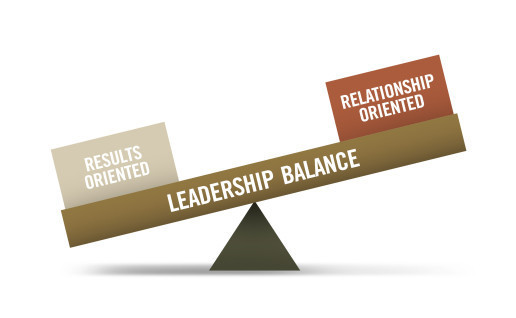Lee Ellis's Blog, page 341
December 23, 2013
What Leaders in America Need the Most, and A Christmas Story
Want to know what leaders in America need the most? Listen to Lee’s latest interview this morning on “Bill Bennett’s Morning in America” as he and Oklahoma Congressman Ernest Istook have a conversation about this topic as well as Lee’s memories of Christmas in the Vietnam POW camps.
Do you agree with Lee’s answer? What are your additional thoughts? We value your input -
Related Posts:
Leadership Snapshot – Vietnam POW 40th Reunion News Coverage – Watch Here
In Memory – Brig. Gen. Robbie Risner – A True Hero, Leader, and Great American


December 19, 2013
Lee’s Latest Recommendation from His Bookshelf – “Character: The Ultimate Success Factor” – See Inside
Here’s the latest recommendation from Lee’s bookshelf – “Character: The Ultimate Success Factor” by Dr. J. Phillip London. What creates success? Is it skill? Talent? Ambition? Luck? Expertise? Perhaps it’s knowing the right people, saying the right things or simply being at the right place at the right time.
It’s none of the above. While a variety of factors form our abilities and influence the events in our lives, there is only one thing that creates genuine success: Character.
Based on the personal, corporate and military experiences of Dr. J. Phillip London, a successful defense industry executive, as well as many other real-life examples, this book presents the time-tested lessons behind character-driven success. Learn more at http://www.characterthebook.com/


December 18, 2013
Learning Leadership from Santa – Six Immutable Principles
(Editor’s Note: from time time, we feature other writers and authors on topics of leadership and personal development. Please enjoy with our compliments.)
By Gene Kamena
Santa’s mission is simple: spread good cheer and make people happy. Simple enough, right? Oh, if it were only so. Upon reflection, the problem statement involved with such an endeavor is daunting: multiple time zones, a narrow window of execution, extreme weather conditions, dealing with Reindeer and Elves (little people), personalized merchandize, and a most finicky clientele (ever-changing demographics of absolute believers, skeptics, form-believers and naysayers.) Failure, however, is not an option.
Only an adroit and seasoned leader of exceptional capacity can deliver the goods (goodies) year after year. What is Santa’s secret? Read on!
While participating in a recent Air War College sponsored (before sequestration) Reindeer and Claus Studies (RCS) trip to the North Pole, students from the Air War College experienced a once in a lifetime opportunity to tour Santa’s World Headquarters. Santa was busy–he is always busy–but he made time to sit down with our group. After sharing a generous offering of milk and cookies, he offered some insights into his success as a leader.
He did not look like any leader I know, but when he began to speak, I noticed a twinkle in his eye and redness in his cheeks. He was authentic. He was in his element. His message, albeit simple, was direct and to the point. I did my best to capture every word, but my hands were freezing. Sage advice straight from the big guy’s mouth:
Santa’s Six Immutable Principles of Leadership
1. Be steady and consistent: Santa cannot have a bad day. He maintains a “Ho-Ho-Ho” attitude in all he does. It is infectious. His steady demeanor underpins a healthy work environment for his Elves. Santa uniquely balances the need to be jolly with a focused determination to get the job done. He message is consistent: “the right toy, to the right child, in the nick of time, every time.” Everyone shares the vision, everyone is on the team.
2. Lead by example: Santa is a mentor for want-to-be ‘helpers’ all over the world. He works hard to maintain his unfitness; no child wants to sit on a skinny Santa’s lap. He never asks his Elves to do anything that he has not done himself a thousand times before. Moreover, he walks the walk of a leader by assuming personal risk to deliver those presents to deserving boys and girls. He sets the pace, he sets the example, and he leads from the front.
3. Reward good performance: Santa knows his reindeer and he knows who is naughty and nice. He rewards good performance. Results matter, they matter a lot. At the North Pole good performance is rewarded, good performance is the standard.
4. Have a personal touch: Santa reads every letter written by every child. He chooses the right toy and delivers that toy personally. Santa might delegate authority to get things done, but the responsibility is his alone.
5. Never quit: Santa never gives up. One year he had to think ‘out of the box’ when confronted with a thick fog that blinded his veteran reindeer team. Santa, in a moment of genius, put Rudolph, an upstart, at the front of his sleigh, making it possible to navigate from the iridescent glow radiating from the young reindeer’s nose. Santa, in his typical manner, gave all the credit to Rudolph. Enough said.
6. Check everything twice: Not one to micromanage, yet nothing is left to chance. Imagine a good child being left off of Santa’s list, or worse yet, a bad child receiving an undeserved present. Santa leads with a light touch, but he knows how to ask the right questions, and when to get involved.
The long flight back to Maxwell Air Force Base allowed time to ruminate over Santa’s message. His leadership style is not flashy (except for his red clothes, red sleigh and reindeer team) but grounded in centuries of experience overcoming seemingly insurmountable obstacles. Santa is the leader we all strive to become. His principles work; one must only believe.
Merry Christmas.
Gene C. Kamena – Bio:
Professor Gene C. Kamena currently teaches Leadership and Ethics at the Air War College in Montgomery, Alabama. He is retired from the Army as a Colonel of Infantry. He holds a B.A. in History from Auburn University and a Masters Degree in Military Art and Science from CGSC at Fort Leavenworth. He graduated from the Army War College in 1998 and Commanded the 2nd Brigade, 1AD. He also served as the Chief of Staff for the 1st Infantry Division, Director of Staff of U.S. Space Command and the Deputy Chief of Staff for U.S. Northern Command, Director for Iraqi Security Forces and formed and led an Iraqi Special Border Commando Brigade on the Syrian border. His operational deployments include; Desert Shield Desert Storm, Macedonia, Kosovo, and Iraq (OIF.)


What is Your Leadership Balance? – Free Case Study Offer
If you haven’t downloaded a copy of Lee’s case study entitled “What is Your Leadership Balance?”, you’ll want to get a copy on our website – FreedomStarMedia.com/Balance.
It’s a FREE gift to friends and colleagues of Lee and FreedomStar Media, and it’s one of our most popular items that we offer. If you’re struggling to maintain a balanced leadership perspective on getting results vs. nurturing relationships, let us help.
If you’ve already gotten a copy in the past, please share your comments!


December 17, 2013
Leaders Overcoming Fears to Do the Right Thing – Lee’s Interview on KOLR TV10
During Lee’s visit to speak at College of the Ozarks last week, he also stopped by and talked to KOLR TV10 Springfield and had a great interview with news commentator, Rob Evans.
Watch his conversation as we talk about how leaders around the world can overcome their fears and do the right thing – click to watch, and please share!


5 Key Ways to Boost Employee Morale and Motivation in the Workplace #PersonalEffectiveness
 Reblogged from Impact People Coaching:
Reblogged from Impact People Coaching:
By Matt Collins, Published December 12, 2013 By Matt Collins
How to create and maintain a happy and engaged workplace remains one of the biggest challenges for companies nationwide. Gallup’s 2012 State of the American Workplace found that about 70 percent of Americans are not emotionally invested in their current job. Why is this the case? A multitude of factors contribute to this lack of engagement, including but not limited to: a lack of communication between employees and upper management, a core mission that fails to inspire a sense of meaning and an imbalance of talents within your team.
Editor's Note: Lee talks frequently about the critical need for balancing results vs. relationships in both life and work. Here are good tips that we wanted to share about nurturing those relationships in your sphere of influence.
December 16, 2013
Behaviorally Smart Leaders are 40% More Productive – Read Why
 Did you know that behaviorally smart leaders are 40% more productive in their day-to-day work? Lee is currently working with the DNA Behavior organization to help leaders become more savvy at understanding themselves as well as interpersonal and team dynamics.
Did you know that behaviorally smart leaders are 40% more productive in their day-to-day work? Lee is currently working with the DNA Behavior organization to help leaders become more savvy at understanding themselves as well as interpersonal and team dynamics.
Read about the three things in this article that a behaviorally smart advisor/leader can do with this important skill, and share your thoughts – Click Here


December 13, 2013
Leadership in Perspective – How a Leader Responds When Capturing Saddam Hussein – The 10th Anniversary
Today marks the 10th anniversary of the capture of Saddam Hussein. However we each may feel about the War, it’s a good day to reflect on the sacrifices of the many men and women who achieved the mission of bringing him to justice.
After he was pulled from his spider hole, Saddam spent his first night in the company of Dr. Mark Green of Clarksville, Tennessee. Today, Dr. Green is a member of the Tennessee Senate and a leading businessman. Then, he wore the uniform of U.S. Special Forces, an Army Ranger who was flight surgeon on some of the most sensitive missions of our wars in Iraq and Afghanistan.
I’d appreciate your sharing his recollections of that night — and his reflections on the sacrificial leadership of his brothers and sisters in arms — as it appear in this morning’s US News & World Report.
Read Dr. Green’s Op-Ed Article, and share your thoughts with us, too.
Related Articles:
Leadership and Overcoming Bitterness – Listen to This Conversation
How to Train Yourself to Make Character-Based Decisions


16 Trends Shaping the Future of Ethical Leadership
 Reblogged from Leading in Context:
Reblogged from Leading in Context:



By Linda Fisher Thornton
Today, I want to share with you the picture of the future that I see, based on a powerful movement toward positive, proactive ethical leadership. As a global community, we are increasingly aware of the impact of our choices on others. We are more aware of our human connection and our responsibilities to one another.
There is a trend toward considering our responsibilities broadly, beyond making profits to also making a difference.
Within the lens of your day-to-day leadership, do you agree with these trends? And, how do they affect your world? Please share your comments -
December 11, 2013
Investing Time to Strengthen Relationships; Don't Leave it to Chance
 Reblogged from The Other Bottom Line:
Reblogged from The Other Bottom Line:

You already know how important it is to strengthen your relationships with your supporting community.
Strong relationships allow your volunteers and donors to contribute in ways that are meaningful to them while also benefiting your organization; ultimately empowering your clients to live more meaningful lives.
Let's not kid ourselves, there's so much to do and understandably, investing the time it takes to cultivate these relationships often lands low on your
Editor's Note: This blog article supports one of Lee's primary leadership lessons learned -- you must balance mission (getting results) and people (nurturing relationships). Regardless of your natural bent as a leader, strategic leaders learn to balance and embrace both as important.








